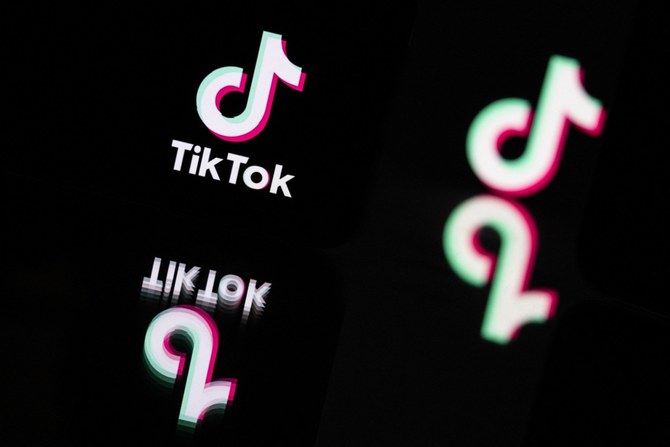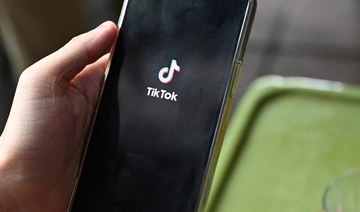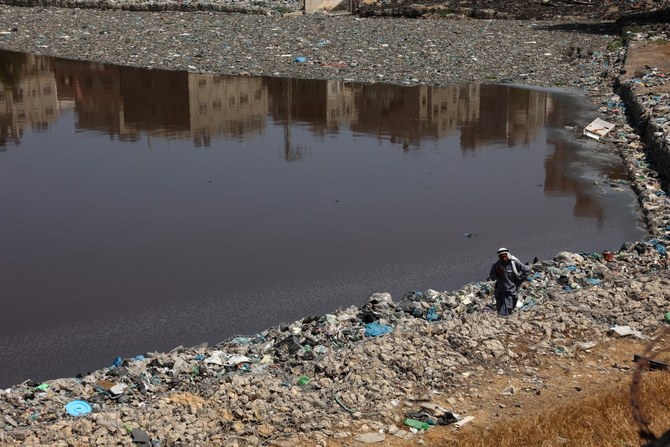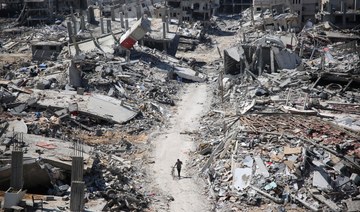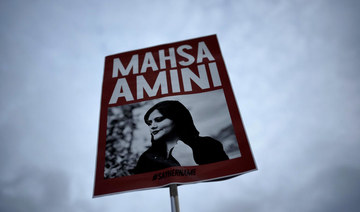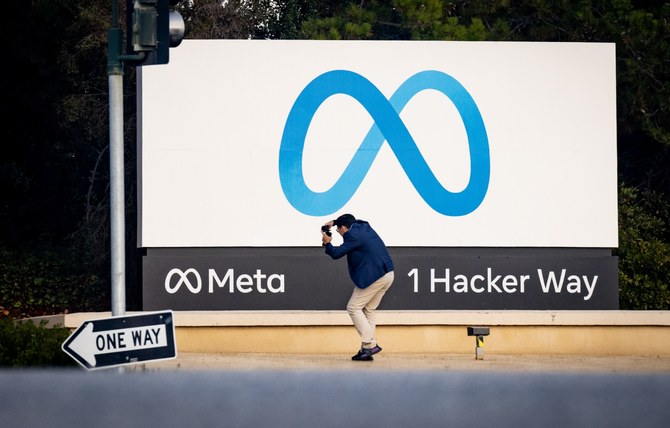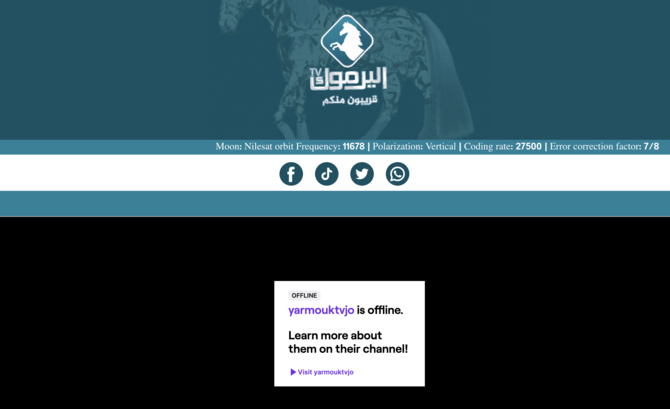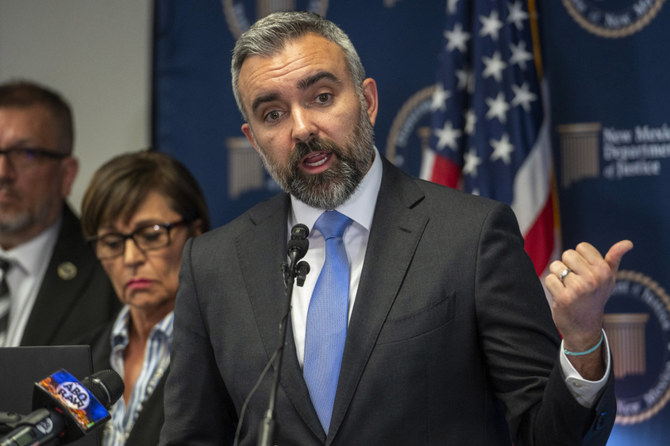LONDON: Calls to boycott TikTok in Saudi Arabia have intensified since the launch of a campaign accusing the video platform of unjustly censoring and banning Saudi accounts expressing positive views about the Kingdom.
The momentum behind the boycott has grown as concerns over TikTok’s alleged algorithm manipulation and biased treatment continue to provoke outrage among the platform’s Saudi user base.
Many users have turned to alternative social platforms to denounce TikTok’s alleged restricting of pro-Saudi content, with the trending hashtag #BoycottTiktok accompanied by posts urging Saudis to delete the app.
One X user, @ayedarini, urged others to boycott the app, claiming the platform is engaging in a “war against us.”
The user added: “It has become clear that it is targeting Saudi accounts and promoting everything against them and their country. Boycotting it has become a duty for every Saudi.”
حرب التيك توك علينا لا يمكن تمر مرور الكرام لانه صار واضح استهدافه لحسابات السعوديين والترويج لكل شي ضدهم وضد وطنهم وصارت مقاطعته واجبه على كل سعودي#مقاطعه_بثوث_التيك30 pic.twitter.com/OGeE6EqWqW
— إياد (@ayedarini) December 1, 2023
A recent post by @X_Tiktok_, a dedicated profile advocating for the platform’s ban in the Kingdom, expressed strong disapproval of TikTok’s “unacceptable” and “abusive” behavior, pledging to persist in its campaign against the platform.
“TikTok still continues its malicious bias with its violating policies on Saudi users’ posts, especially national clips,” the post said. “Saudi Arabia remains a red line and the Saudi people remain strong and strict in their defense of their country, religion and leadership.”
|| التيك توك لازال يواصل تحيزه الخبيث بسياساته المنتهكه على منشورات المستخدمين السعوديين وأخص المقاطع الوطنية الي من المفترض ان يكون الحق للمستخدم نشر ثقافته وتاريخ بلاده مع دول العالم لإيصال رسالة ايجابية لا أقل ولا أكثر ونتفاجأ " بإزالة الفيديو بدون جواب مقنع " فقط استهداف… pic.twitter.com/dWokbiKTYU
— حملة مقاطعة التيك توك (@X_Tiktok_) December 3, 2023
Influential social media personalities and celebrities have lent their support to the campaign, leveraging their substantial followings to amplify the message and motivate others to join the boycott. The Saudi private sector has also responded to the boycott’s impact.
Citing a source close to the Saudi First Division League earlier in November, Asharq Al-Awsat newspaper reported that the the second tier of professional football in Saudi Arabia had cut off its relationship with TikTok due to the platform’s alleged actions against Saudi content.
Popular social media news channel The Saudi Post announced on Thursday the cessation of its publications and the closure of all its accounts on the platform.
TikTok issued a statement on Wednesday, denying allegations of restricting Saudi content and dismissing the campaign as a “coordinated action.”
The app said in a statement: “The rumors regarding TikTok removing content related to Saudi Arabia are not true. We strongly reject these allegations that are inconsistent with our policies and values.
“We strongly reject the deliberate smear campaigns that are practiced on our employees and partners and threaten their security and safety.”
نحن في تيك توك نعتز بمجتمعنا في المملكة العربية السعودية الذي يعد مصدر إلهام للإبداع في مختلف المجالات. اقرأ بياننا الرسمي بشأن الادعاءات الأخيرة وكيف نقوم بدعم مجتمعنا باستمرار. https://t.co/bQRAMqKzU6
— TikTok MENA (@TikTokMENA) November 8, 2023
Political analyst and media personality Salman Al-Ansari commented on the boycott, saying that the platform’s statement lacked any “commitment to corrective measures,” which would only escalate the campaign.
This year, TikTok reported having 26 million active users in Saudi Arabia, positioning it as the second most popular social platform after YouTube.
Data indicates that the boycott has resulted in a decline in the number of Saudi TikTok users. According to Google Trends, the popularity of the term “TikTok” has decreased by 25 percent since the campaign began.
In an effort to rebuild trust, TikTok launched a dedicated hashtag page for Saudi content on its platform.
Despite these measures, the boycott is gaining momentum, transforming into a symbol of public discontent and a defense of Saudi Arabia.
The campaign’s uncertain impact on TikTok’s user base and the platform’s reputation highlights the growing power of collective action by social media users, an area in which TikTok has faced scrutiny.
In the last few years, TikTok and parent company ByteDance have faced intense criticism for handling sensitive user data, leading to calls for a ban in the US.
In November, congress members, activists and tech investors renewed demands for a TikTok ban, alleging bias in content related to the Israel-Hamas conflict.
Nepal last month announced a full ban of TikTok in the country, saying that the Chinese-owned video-sharing platform was “detrimental to social harmony.”



